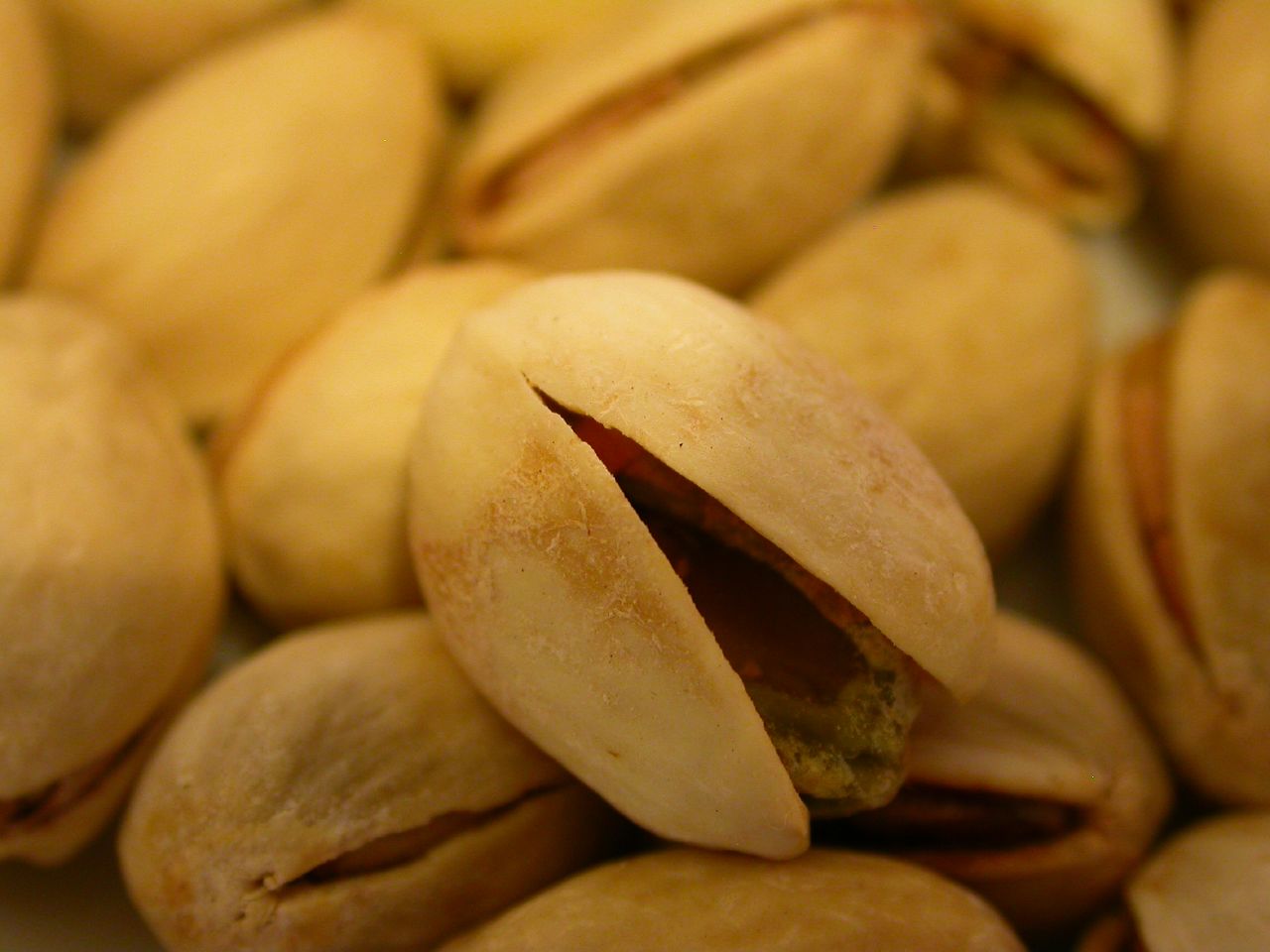Health Benefits of Pistachio Nuts
What are the health benefits of pistachio nuts?
Pistachio nuts offer several health benefits when consumed as part of a balanced diet:
- Nutrient-Rich: Pistachios are rich in nutrients, including protein, fiber, healthy fats, vitamins (such as vitamin B6 and vitamin K), and minerals (such as copper, manganese, and phosphorus).
- Heart Health: The monounsaturated and polyunsaturated fats in pistachios can help reduce bad cholesterol levels, lower the risk of heart disease, and improve overall heart health.
- Antioxidant Properties: Pistachios contain antioxidants such as vitamin E and polyphenols, which help protect cells from damage caused by free radicals and may reduce the risk of chronic diseases.
- Blood Sugar Control: Pistachios have a low glycemic index, which means they cause a slower rise in blood sugar levels. This can be beneficial for blood sugar control, especially for people with diabetes.
- Weight Management: Despite being calorie-dense, pistachios can help with weight management due to their protein, fiber, and healthy fat content, which can help you feel full and satisfied.
- Eye Health: Pistachios are a good source of lutein and zeaxanthin, antioxidants that are important for eye health and may reduce the risk of age-related macular degeneration.
- Gut Health: Pistachios are a good source of fiber, which can help promote healthy digestion and prevent constipation.
- Skin Health: The vitamin E and other antioxidants in pistachios can help protect the skin from damage caused by UV rays and pollution, keeping it looking healthy and youthful.
Overall, pistachio nuts are a nutritious snack that can be a healthy addition to your diet. They can be enjoyed raw or roasted and used in a variety of dishes, such as salads, desserts, and baked goods, to add flavor and nutritional value.
What are the health risks of pistachio nuts?
Pistachio nuts are generally safe for most people when consumed in moderation. However, there are a few potential health risks associated with pistachios:
- Allergic Reactions: Some individuals may be allergic to pistachios, which can cause mild symptoms such as itching and hives, or severe reactions such as anaphylaxis. People with tree nut allergies should avoid pistachios.
- Caloric Content: Pistachios are calorie-dense, so excessive consumption can contribute to weight gain if not eaten in moderation.
- Fungal Contamination: Pistachios can be contaminated with molds and fungi, such as Aspergillus flavus, which can produce aflatoxins. Aflatoxins are toxic substances that can increase the risk of liver cancer and other health issues. Proper storage and processing can help reduce aflatoxin levels in pistachios.
- Gastrointestinal Issues: Some people may experience digestive issues such as bloating, gas, or diarrhea from eating pistachios, especially if they are consumed in large quantities or if they are not chewed thoroughly.
- Oral Health Concerns: The hard shells of pistachios can pose a choking hazard, especially for young children or individuals with swallowing difficulties. It’s important to shell pistachios before eating them to avoid this risk.
- Pesticide Residue: Like other nuts and seeds, pistachios may contain pesticide residue, especially if not organically grown. Washing pistachios thoroughly before eating them can help reduce pesticide exposure.
Overall, pistachio nuts are a nutritious snack that can be a healthy part of your diet. However, individuals with allergies, digestive issues, or concerns about fungal contamination should consume pistachios with caution and consult with a healthcare professional if they have any concerns.




